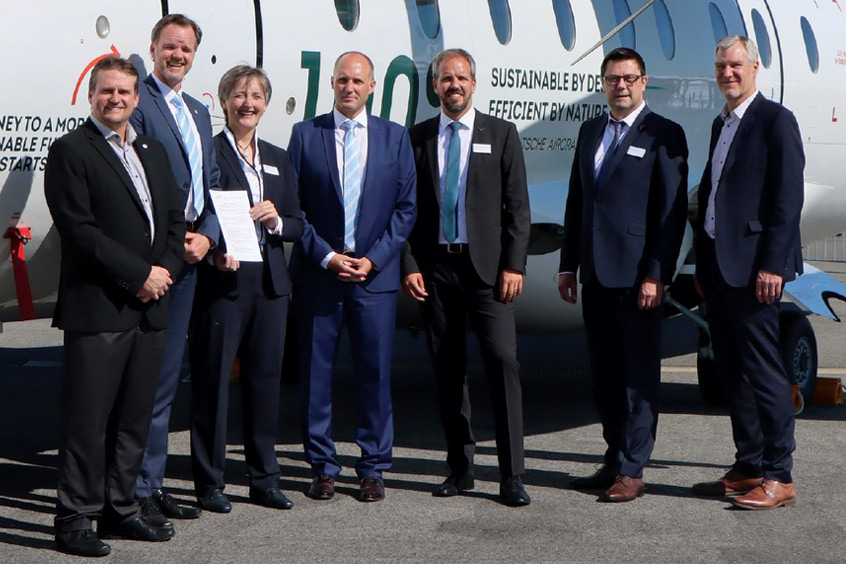ACE 2026 - The home of global charter.
 The bimonthly news publication for aviation professionals.
The bimonthly news publication for aviation professionals.

German aircraft manufacturer Deutsche Aircraft and South African chemicals and energy company Sasol have signed a MoU on a joint research project for H2-SAF (PtL) applications in aviation. The two companies plan to further collaborate on the certification of sustainable drop-in jet fuels and the ramp-up of PtL use.
With its D328eco programme, Deutsche Aircraft is working on an aircraft in the under 50 seat market that will achieve near carbon neutrality. It is scheduled to enter service by 2025 and will be able to use any certified sustainable aviation fuel and regular kerosene, as well as PtL-based fuels.
Sasol ecoFT is an ideal partner for that task as the South African company is the world leader in FT (Fischer-Tropsch) technology. Sasol ecoFT leverages Sasol's extensive FT experience, proprietary technology and catalysts to produce sustainable fuels and chemicals via Power-to-X processes.
"Sasol ecoFT and Deutsche Aircraft stand at the beginning of a decarbonisation journey. We both have products originally designed in the age of fossil fuels. Together we can develop rapid solutions to combat climate change by improving our products while building on our heritage and expertise," says Deutsche Aircraft CEO Dave Jackson.
The H2-SAF (PtL) application is a scalable, long term solution to minimise the carbon dioxide (CO2) footprint of aviation. The process uses CO2 recycled from regular air, and hydrogen produced with green energy to form a synthetic fuel. Fuels manufactured like this still have the same performance characteristics as regular kerosene: high energy density at low volume, proven safety and full compatibility with established infrastructures. Furthermore, these substances contain less aromatics and sulphur, thus improving local air quality and reducing the high altitude impact of aviation.
The two companies will not only work on producing H2-based PtL but also aim at a certification for this type of fuel to be used as drop-in jet fuel.
The H2-SAF (PtL) application is similar to Coal-to-Liquid (CtL) applications, in which Sasol has deep global experience at deploying at industrial scale. As a first step in their research partnership they will explore the compatibility of materials and system components with blended synthetic fuels produced through Sasol's FT technology as currently applied in its existing CtL process. The priority here is to expedite the certification of more sustainable PtL options.
"We are extremely excited about the partnership with Deutsche Aircraft as we take a holistic approach to climate-neutral aviation by looking at the whole value chain from fuel production up to aircraft system level. The joining of forces between aircraft manufacturers and fuel producers is vital if we want to ensure that aviation becomes sustainable, while ensuring the highest possible safety standards," says Sasol senior vice president Helge Sachs.